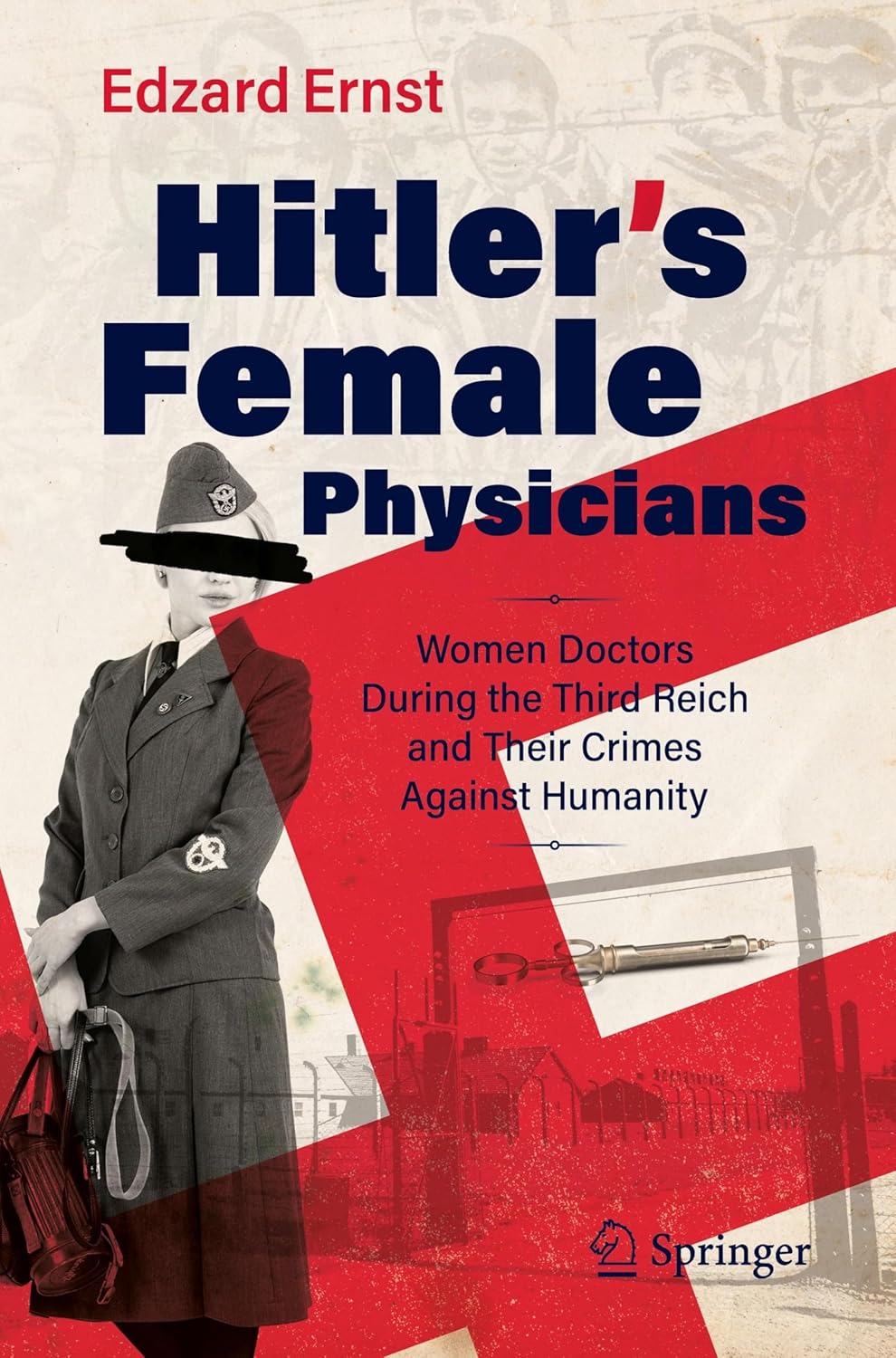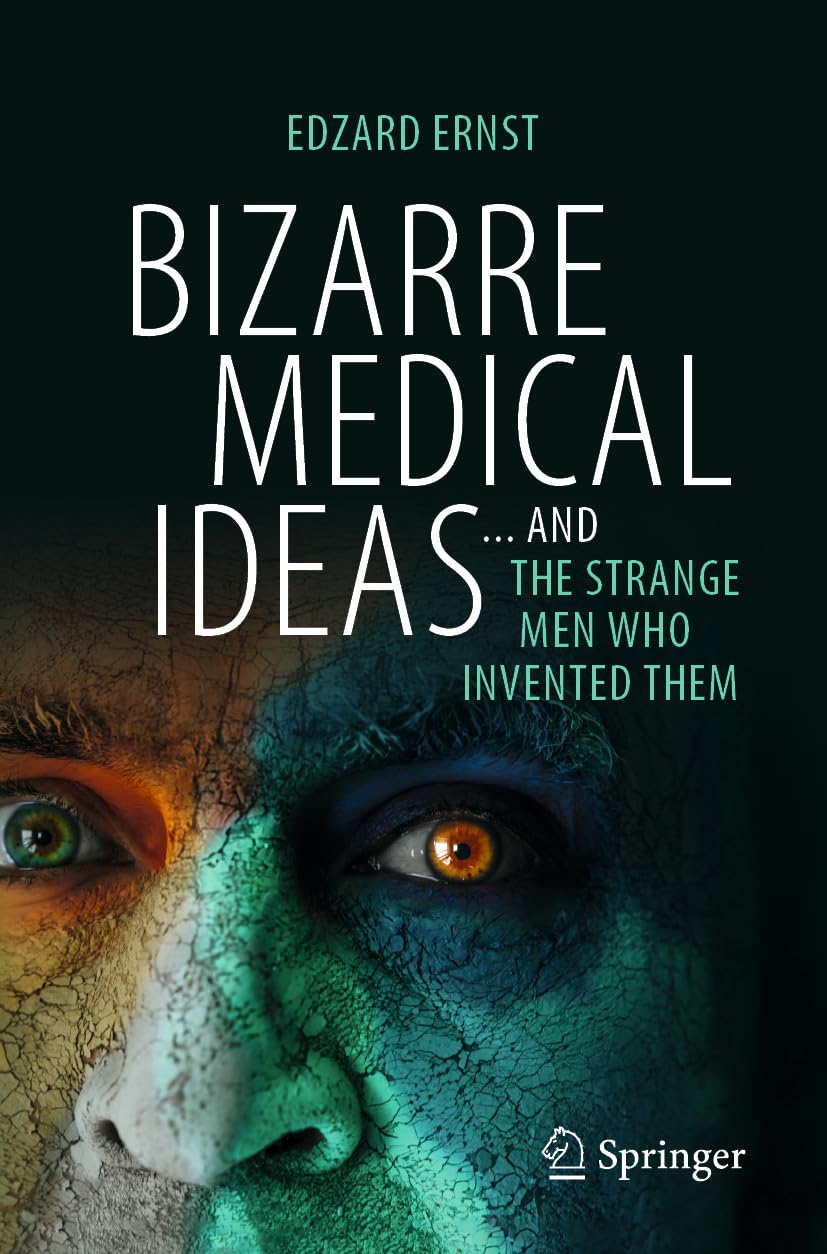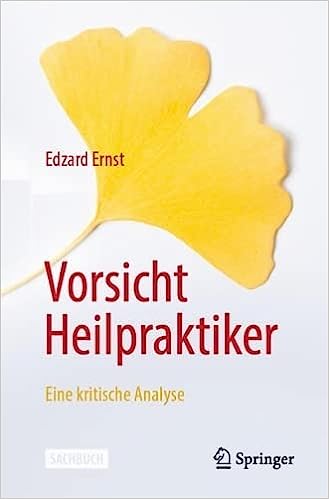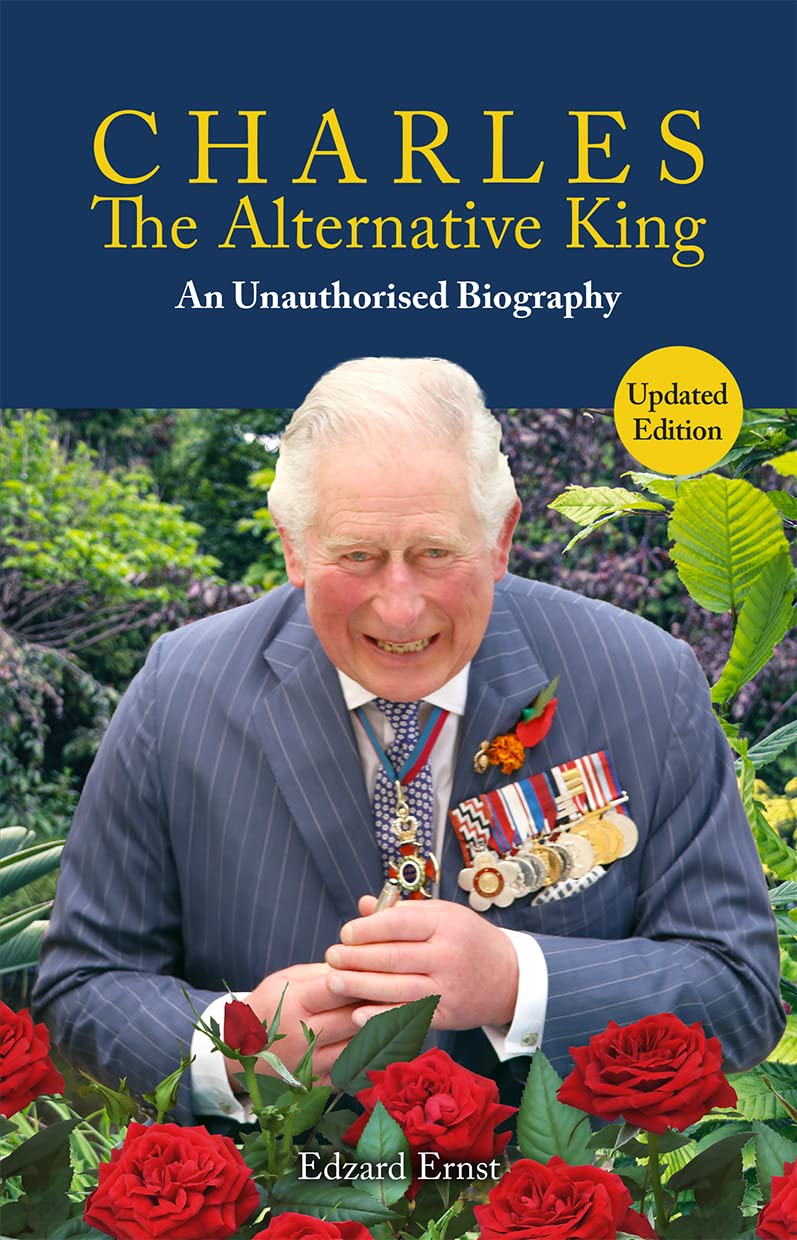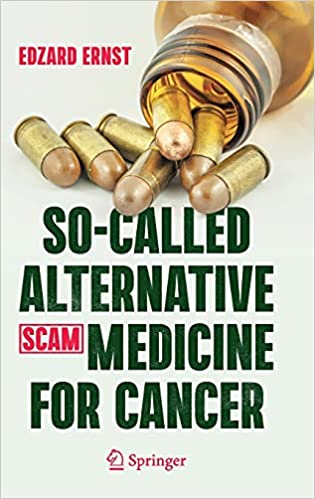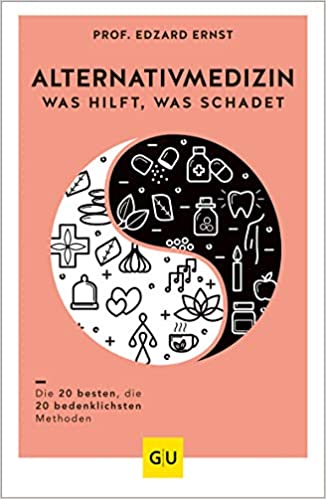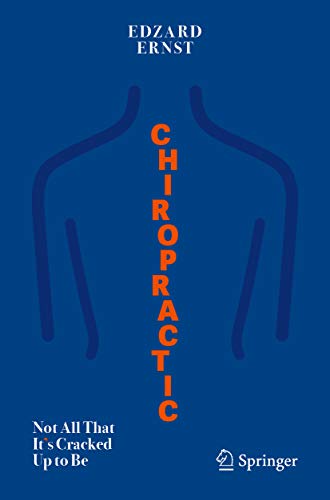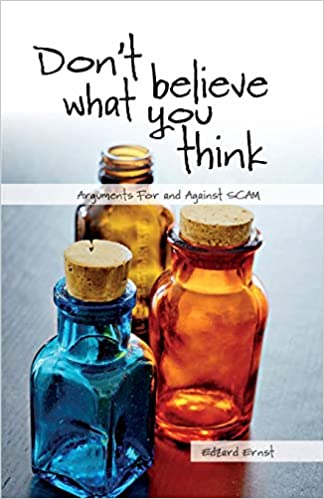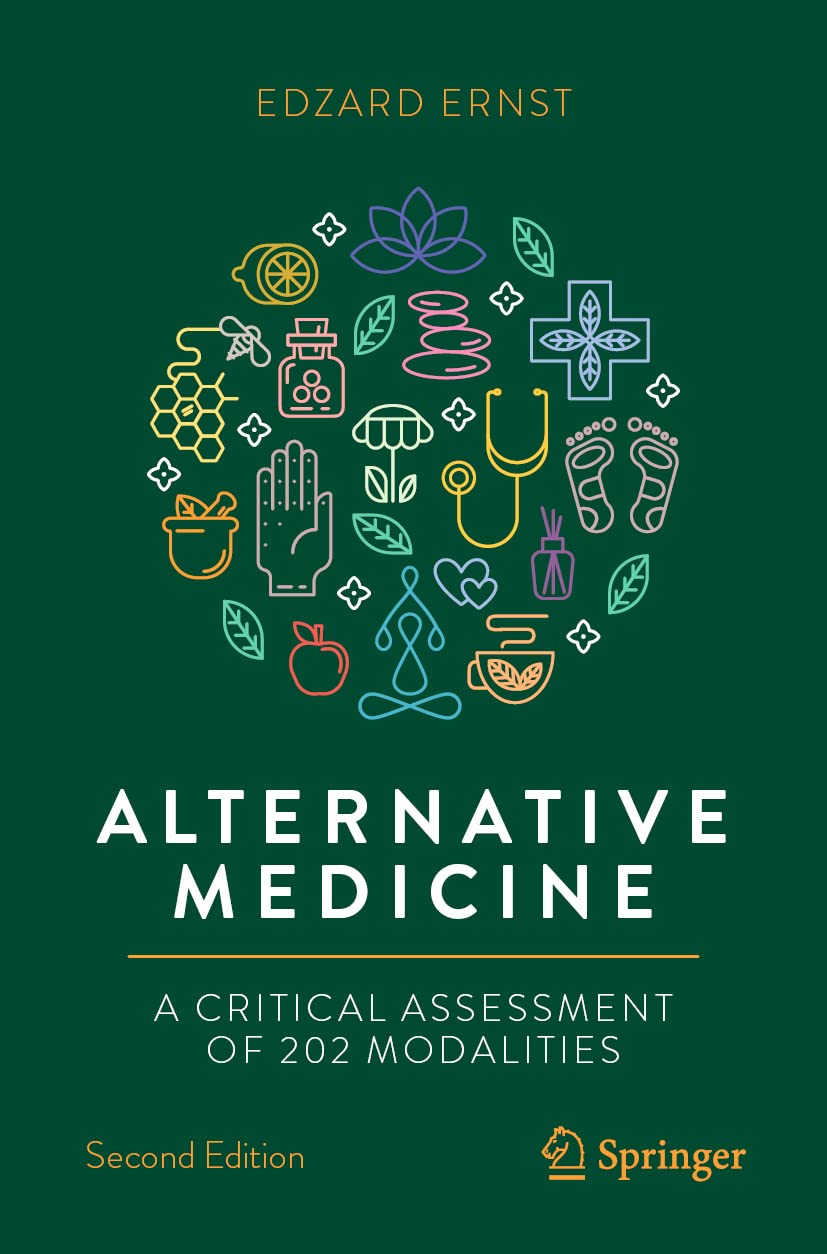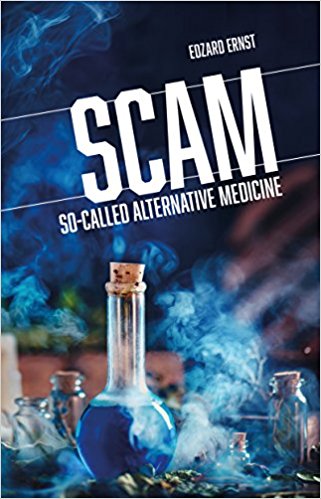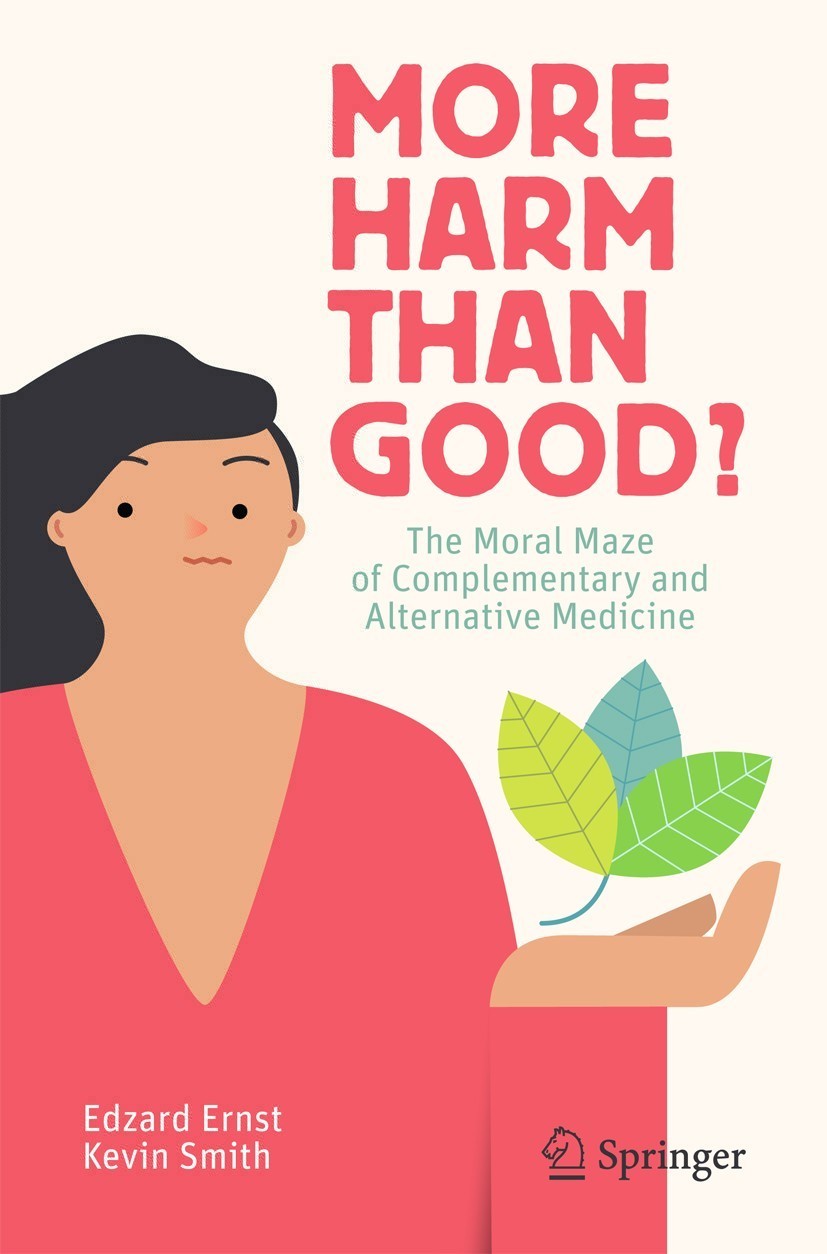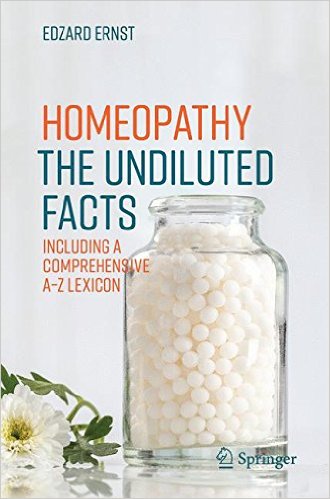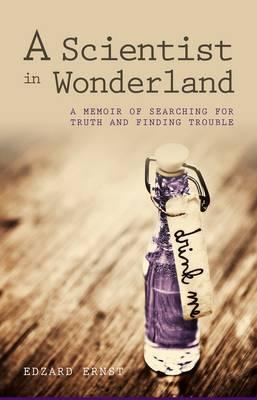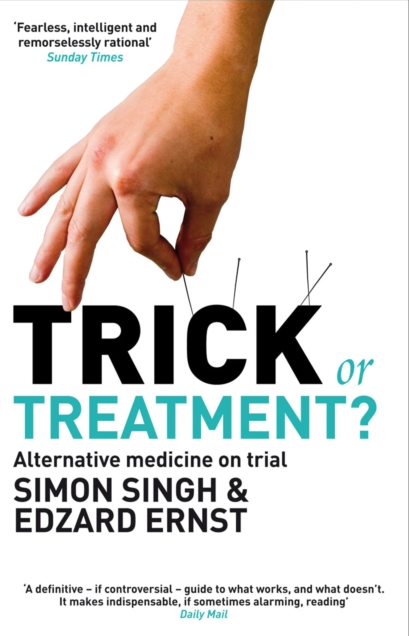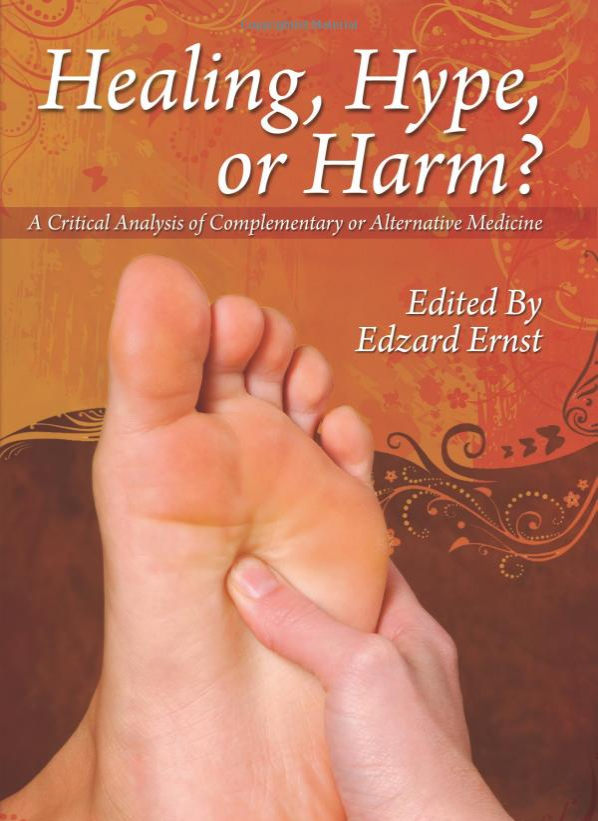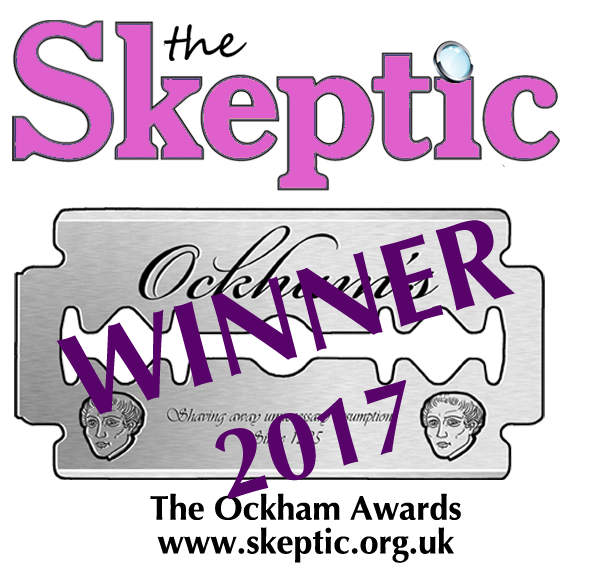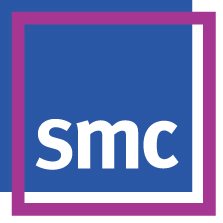Use of so-called alternative medicines (SCAM) is, as we have frequently discussed on this blog, associated with an anti-vax attitude or vaccine hesitancy. However, the nature of—and reasons for—this association are not entirely clear, not least because both SCAM and vaccine hesitancy are complex, heterogeneous phenomena.
A recent study aimed to determine which aspects of SCAM predict vaccine hesitancy and to probe the psychological roots of their association. In a two-stage survey (N1 = 1905, N2 = 1443), participants from Argentina, Germany and the USA reported vaccine/SCAM health behaviors, intentions and beliefs. They also responded to scales probing attitudes to science, individual differences in cognitive styles, and anomalous beliefs.
An Item-Response Theoretic model of vaccine responses revealed that, outside of either total acceptance or outright refusal of vaccines, hesitancy reflected a gap between past vaccination behaviors and future behavioral intentions. More than SCAM-use, vaccine hesitancy was predicted by SCAM-relevant health beliefs. An oppositional view of natural vs. biomedical care was central in this regard. Unscientific mindsets—both in attitudes to expertise and in anomalous beliefs—underpinned the psychological similarity of SCAM beliefs and vaccine hesitancy.
The authors concluded that the relationship between SCAM and vaccine hesitancy is primarily a matter of health-relevant beliefs centered on natural vs. scientific medicine. This relationship—and in particular, a gap between past vaccine behaviors and future be havioral intentions—reflects fundamentally unscientific mindsets. Thus, a key challenge in addressing this form of vaccine hesitancy is one of perspective taking: Scientists must find persuasive reasons to vaccinate which appeal to people who do not see science as the main route to medical knowledge.
These findings should seem fairly obvious to those of us who have followed the discussions on this blog and elsewhere around vaccines and vaccinations. In the present study, belief in ‘naturalness’ predicted vaccine acceptance – and did so consistently across countries – more than other health beliefs. The associations between vaccine acceptance and SCAM were not strongly related to sociodemographic factors. The only regular pattern was for gender, with women being both more vaccine resistant and more pro-SCAM than men.
Negative attitudes towards vaccines and belief in ‘naturalness’ were associated with a cluster of ‘anti-expert’ variables including distrust in science. Vaccine resistance was also associated with a range of anomalous beliefs or biased belief updating styles. These negative attitudes to scientific sources of information and unscientific belief contents are different aspects of an unscientific mindset.
I think, this makes sense and seems to confirm previous findings about the association between SCAM-use and vaccine hesitancy: the two are linked indirectly by a common denominator.
There are many interesting and complex interrelationships between religion ond so-called alternative medicine (SCAM). Some of them were discussed here:
- ‘The power of all religions’ is being tested in a study with severely ill corona-virus patients
- Alternative medicine = ‘Ersatz’ religion?
- The ‘Healing Power of God’: a religious group was found guilty of manslaughter of a diabetic girl
- UK politician dabbles in faith healing
- The spiritual healers who sexually harass, molest, and rape female patients
- A ‘Christian Checklist’ for so-called alternative medicine
- Biblical Naturopathy, another SCAM that is new to me
- The ‘WORST PAPER OF 2022’ COMPETITION. Entry No 3: Effects of an Islamic-Based Intervention on Depression and Anxiety
- Daily prayer against severe COVID – an update of a study started two years ago
- Reincarnation therapy “can change your life”
- Does religiosity influence post-operative survival?
- Scientology and chiropractic: is there a link?
- he real danger of yoga!
The list might need to be up-dated with ‘Prophetic Medicine’. This term, I must admit, was new to me. So, I studied the paper and was enlightened. Here is its abstract:
Integrative medicine (IM) aims to create a comprehensive healthcare system by combining conventional medicine with complementary and alternative approaches. This model prioritizes patients, emphasizing the importance of the doctor–patient relationship. By integrating the most beneficial elements of both conventional and complementary medicine, patients can benefit from enhanced therapeutic outcomes while minimizing risks associated with their combination. Given this complexity, patients need access to qualified IM practitioners who can provide guidance on the potential benefits and drawbacks of these combined approaches. One notable complementary approach is prophetic medicine (PM), particularly prevalent in Muslim communities. This practice offers preventive and curative treatments based on the teachings and practices of Prophet Muhammad. Its global recognition is on the rise, attracting increasing interest from scientists regarding its potential benefits. For instance, cupping therapy, a technique employed in PM, has been shown to offer advantages over conventional medications for various ailments, including pain management and blood conditions, such as thalassemia, offering potentially superior outcomes. A precise delineation of the scope of PM practices is crucial for a comprehensive understanding of the methodologies employed, their potential integration into contemporary healthcare systems, and the multifaceted factors influencing patient outcomes. By combining conventional medical practices with the principles of PM, IM can provide a more holistic approach to patient care. Hence, this paper explores this new model, its diverse applications, and its potential impact on IM.
The author’s lengthy conclusion in the article itself is as follows:
IM is gaining traction as it aims to improve patient care and alleviate suffering. Unlike merely combining CAM, IM emphasizes the holistic healing of the mind, body, and spirit. IM can be offered through consultations, standalone clinics, or even as a primary service. Many therapies rooted in PM can be particularly beneficial for patients facing challenging illnesses. However, the successful implementation of PM within an IM framework may be constrained by certain limitations. The most significant challenge is adapting cultural and religious beliefs to modern healthcare practices. To overcome these challenges, it is essential to establish clear, comprehensive, and universally applicable definitions and frameworks for IM. These frameworks should be comprehensive, well-developed, and consider historical roots, religious influences, and modern applications. Moreover, studies indicate that PM therapies are widely used around the world, yet there is a pressing need for a clear definition that encompasses these factors. Defining the scope of PM practices will facilitate a better understanding of the common methods, how they can be integrated into healthcare systems, and the various factors that influence patient care. Furthermore, PM practitioners require enhanced education and training to improve their understanding of traditional remedies and their effective application. Ultimately, addressing these challenges will likely lead to an improved IM model.
Who writes such remarkable nonsense?
The author of the paper is Saud Alsanad, an Associate Professor of Complementary and Alternative Medicine (CAM) in the College of Medicine at the University of Imam Mohammad Ibn Saud Islamic University (IMSIU), Kingdome of Saudi Arabia. He is a founding member and the former CEO of the Saudi National Centre for Complementary and Alternative Medicine, Riyadh, Kingdome of Saudi Arabia. Dr Alsanad is a registered pharmacist at the Saudi Commission for Health Specialists. He completed his PhD in Complementary and Alternative Medicine at the Reading School of Pharmacy, University of Reading, UK, under the supervision of Professor Elizabeth M Williamson.
Alsanad defines PM as medicine “based on the teachings and practices of Prophet Muhammad”. It includes a weird mix of modalities (for instance: spiritual and religious therapy as well as cupping). Would it not be reasonable to demand that each modality of whatever medicine must meet the accepted standards of effectiveness and safety that are applied in conventional medicine? If a therapy demonstrably generates more good than harm, we might consider it for integration into routine care. If not we shouldn’t even be called ‘medicine’!
Most of the treatments listed under the PM-umbrella fall into the second category. Therefore PM is arguably not medicine at all. Whether or not a therapy was mentioned by a this or that prophet is utterly immaterial and should really not matter in the age of evidence-based medicine.
This review is entitled “A narrative review of the impact of reiki and therapeutic touch on sleep quality and health in women” and aimed to evaluate the application methods of energy therapies, specifically Reiki and Therapeutic Touch, their health effects, and their positive impact on sleep quality, particularly in women.
The author who is from the Osmaniye Korkut Ata University, Faculty of Health Sciences, Midwifery Department, Osmaniye, Turkey, states in her abstract that:
“energy therapies are holistic approaches designed to restore energy balance and enhance overall health. Reiki utilizes universal energy flow to promote physical, mental, and spiritual harmony. By balancing energy centers, Reiki helps alleviate stress, anxiety, and depression while being a generally safe practice with no reported side effects.”
The author continues by claiming that studies involving menopausal women suggest that Reiki improves sleep quality, reduces the time to fall asleep, and stabilizes sleep patterns.
Therapeutic Touch, the author explains:
“focuses on sensing and balancing the body’s energy fields, operating on the principle that energy imbalances contribute to illness. Research indicates that Therapeutic Touch alleviates stress, fatigue, anxiety, and pain, while enhancing sleep quality, relaxation, and overall quality of life. Studies in menopausal women confirm its effectiveness in addressing sleep disturbances and promoting well-being.”
The author concludes that energy therapies, particularly methods like Reiki and Therapeutic Touch, have garnered attention for their positive impact on women’s health and overall well being. These noninvasive, safe, and low-cost practices have shown promise, especially in areas such as sleep quality, stress management, and the alleviation of menopausal symptoms. However, the limited scientific literature in this field necessitates further research to solidify their efficacy.
The author also issues the following ecommendations:
• Theoretical and practical training on energy therapies should be integrated into nursing education
programs to enhance awareness and application.
• Randomized controlled trials should be conducted to investigate the effectiveness of energy
therapies across different age groups and health conditions.
• Research on women’s health should focus specifically on the effects of energy therapies on sleep
quality and menopausal symptoms.
• Public awareness of energy therapies should be increased, and their integration into healthcare systems
should be facilitated.
• Energy therapies should be recognized as complementary treatment options in health institutions,
contributing to patient satisfaction and stress management.
This paper is a good example to show why I have often warned that research of so-called alternative medicine (SCAM) is in serious danger to be no longer taken seriously. Scientists and rational healthcare professionals will simply dismiss it outright because it simply is pseudo-research masquarading as the real thing.
The review fails to contain a methods section which means we do not know on what evidence the conclusions are based. Once we have a closer look, we realize that the paper:
- relies on highly selected studies;
- does not even consider the implausibility of energy healing;
- fails to assess the methodological quality of the primaary studies.
All this is done so that the author – presumably a nurse who practices energy healing – can arrive at the conclusion she set out to draw.
Such papers are deeply disturbing because they mislead the reader and undermine trust in science.
PS
In case you are interested in a reasonable and evidence-based conclusion about energy healing, here is one I suggest:
A review of the evidence shows that energy healing flies in the face of science and is not supported by sound clinical evidence. Energy healing has therefore no place in rational healthcare.
I have to admit I don’t normally read the DALLAS MORNING NEWS -but perhaps I should! Here are a few excerpts from an article they just published:
Texas health experts are warning that vitamin A — found in food and in supplements such as cod liver oil — is not an alternative to measles vaccination. They’re urging Texans to vaccinate themselves and their children, as the West Texas measles outbreak continues to grow and after an unvaccinated child died from the illness.
Kennedy’s comments in the column — that the U.S. Centers for Disease Control and Prevention recommend vitamin A for people hospitalized with measles, and that studies have found vitamin A can help prevent measles deaths — are not inaccurate.
But they lack important context, said Dr. Peter Hotez, a vaccine expert at the Baylor College of Medicine. Hotez worries the missing context might mean people put their faith in vitamin A over vaccination — a decision that could cost lives. “The thing that I worry about is by [Kennedy] playing this up and others playing this up, it sends a false equivalency message, that somehow treating with vitamin A is equivalent to getting vaccinated, which is clearly not the case,” Hotez said…
“There’s zero evidence that it’s preventative,” said Dr. Christopher Dreiling, a pediatrician at Pediatric Associates of Dallas. Dreiling said he hasn’t had parents ask him about vitamin A for measles, but he wouldn’t be surprised if it started popping up after Kennedy’s comments. Dreiling’s main concern, he said, is that parents have correct information to make informed decisions…
____________________
Kennedy is, of course, not alone in pushing Vitamin A for measles. On this blog, we recently saw Dana Ullman (MPH, CCH) doing the same. On Feb 28, he wrote the following comment:
Thank YOU for verifying that the Texas hospital here seems to have killed these children. According to your article above, the head of this Texas hospital asserted, “Unfortunately, like so many viruses, there aren’t any specific treatments for measles.”
And yet, according to the New England Journal of Medicine, Vitamin A has clearly been shown: “Treatment with vitamin A reduces morbidity and mortality in measles, and all children with severe measles should be given vitamin A supplements, whether or not they are thought to have a nutritional deficiency.”
https://www.nejm.org/doi/full/10.1056/NEJM199007193230304
And what might Kennedy and Ullman have in common (apart from being dangerous nut-cases and quackery-promoters)?
Simple: they both don’t understand science!
As we all know, the FDA cannot require that dietary supplements be proven effective before they are sold. Yet, Robert F. Kennedy Jr. once said the FDA is exhibiting an “aggressive suppression” of vitamins, dietary supplements, and other substances and that he will end the federal agency’s “war on public health”.
With Kennedy now in the driver’s seat, the supplement industry expects to make bolder health claims for its products and to get the government, private insurers, and flexible spending accounts to pay for supplements, essentially putting them on an equal footing with FDA-approved pharmaceuticals.
The day Kennedy was sworn in as secretary of Health and Human Services, Trump issued a “Make America Healthy Again” agenda instructing health regulatory agencies to “ensure the availability of expanded treatment options and the flexibility for health insurance coverage to provide benefits that support beneficial lifestyle changes and disease prevention.” Kennedy added that dietary supplements are one key to good health. Supplement makers now want programs like health savings accounts, Medicare, and even benefits from the Supplemental Nutrition Assistance Program, or SNAP, to pay for vitamins, fish oil, protein powders, herbal remedies and probiotics.
In speeches and in a pamphlet called “The MAHA Mandate,” Emord and alliance founder Robert Verkerk said Kennedy would free companies to make greater claims for their products’ alleged benefits. Emord said his group was preparing to sue the FDA to prevent it from restricting non-pharmaceutical products.
With their ‘Mandate’ Emord and Verkerk want “to shift the healthcare paradigm towards one that restores the health of the American people through a holistic and individual-centered approach that works with, rather than against, nature”.
But do they ever question whether:
- vitamins do anything at all to people who eat a normal diet?
- fish oil is effective and safe for which conditions?
- protein powders have any effects beyond eating a steak?
- herbal remedies generate more good than harm?
- probiotics work for which conditions?
The short answer is no. To me, it seems that the MAHA are as uninterested in the evidence regarding efficacy and safety (quite possible they know how flimsy it is) as they are keen on the promotion of quackery.
This fascinating article [ full title: THE CRIMINAL OFFENSE OF QUACK MEDICINE AND QUACK PHARMACY (ART. 254 OF THE CRIMINAL CODE)] was written by Igor Vuković, PhD, Professor at the University of Belgrade, Faculty of Law. Here is its English language abstract:
The development of conventional medicine throughout history was accompanied by the appearance of quackery. On the one hand, in the absence of trained doctors, people all the same needed treatment, which was generally available only from unqualified persons. On the other hand, this need has generated greed and often deception regarding the expected success in treatment. This caused this phenomenon to be considered a criminal offense in most legislations. However, with the increasing legalization of the so-called complementary (alternative) medicine, whose methods are less scientifically proven, the attitude towards quackery is somewhat changing. The author notes that the scope of the act of „providing other medical services“ is particularly debated, since in that way acts of not only treatment but also medical assistance and care are brought under the framework of incrimination. Serbian law also considers as punishable acts of quack pharmacy, which is defined as preparing or issuing of medicaments without the appropriate professional qualification. This incrimination also raises important questions, which the author tries to answer. In the conclusion, it is stated that, according to the factual situation, situations of quackery can
often be brought under the criminal offense of fraud.
Even though it is not always clear to me what the authors meant to express, I feel that surely he is right in raising some of the issues related to so-called alternative medicine (SCAM). On this blog, I have repeatedly highlighted legal aspects of SCAM as they arose, e.g.:
- The ‘Healing Power of God’: a religious group was found guilty of manslaughter of a diabetic girl
- Prison sentence for a German HEILPRAKTIKER who issued false vaccination certificates
- Arrests in Germany of healthcare professionals who issued fake COVID certificates
- Boots the Chemist, legal complaints, and alternative medicines
- Homeopathy on the NHS: the first legal challenge
- Time for the legal profession to have a serious look at homeopathy?
- A scale of misdemeanors by SCAM practitioners towards patients and the public
- A warning for consumers and healthcare professionals: DO NOT USE THIS HOMEOPATHIC PRODUCT!
- Chiropractors charged with sexual assault
- Yoga guru arrested for rape and human trafficking
- Medicare fraud by chiropractors costs taxpayers millions
- A $2.6M Insurance Fraud by Chiropractors and Doctors?
- Center for Inquiry files a lawsuit against Boiron
- A naturopath responsible for the death of two cancer patients was sentenced to two years
- MMS-salesman Andreas Kalcker has been arrested in Argentina
- US Chiropractor in court for making false claims related to COVID-19
- Alleged sexual misconduct serves a blow to osteopathy in France
- The lack of chiropractic ethics: “valid consent was not obtained in a single case”
- “We hope that the publicity surrounding this event will highlight the dangers of chiropractic”… A statement of the family of the man who died after treatment of a ‘vertebral subluxation complex’
- Walmart is being sued for selling homeopathic products
Even a short glance at this list makes it obvious, I think, that there are plenty of legal issues in and around SCAM. I feel it would be important that we all – consumers, clinicians, researchers, lawyers and politicians – become aware of them and, when necessary, act accordingly.
On this blog and elsewhere, we have many people doubting that COVID vaccinations were effective; some even claim that they were detrimental to our long-term health. In this context, cardiac conditions are often mentioned, as they constitute a significant category of potentially serious post-COVID conditions.
Perhaps these doubters will find this new analysis relevant. The objective of this systematic review was to synthesise the evidence on the factors associated with the development of post-COVID cardiac conditions, the frequency of clinical outcomes in affected patients, and the potential prognostic factors. A systematic review was conducted using the databases EBSCOhost, MEDLINE via PubMed, BVS, and Embase, covering studies from 2019 to December 2023. A total of 8343 articles were identified, and seven met the eligibility criteria for data extraction. The protective effect of vaccination stood out among the associated factors, showing a reduced risk of developing post-COVID cardiac conditions. Conversely, COVID-19 reinfections were associated with an increased risk of cardiovascular outcomes. Regarding the main outcomes in these patients, most recovered, although some cases persisted beyond 200 days of follow-up. The study included in the analysis of prognostic factors reported that the four children who did not recover by the end of the study were between two and five years old and had gastrointestinal symptoms during the illness.
The authors concluded that the present findings provide valuable contributions to a better understanding of the evolution of post-COVID cardiac conditions. Despite the limited number of eligible studies, this review offers insights that describe the progression of cardiac conditions, from their onset to medium-term follow-up of patients. The protection offered by the COVID-19 vaccination regimen was observed beyond the acute phase of the disease, reducing the risk of developing post-COVID cardiac conditions. Public policies encouraging vaccination should be promoted to prevent SARS-CoV-2 infections and reinfections. Given that both COVID-19 and heart diseases occupy a significant place on the global health agenda, post-COVID cardiac conditions deserve due attention. Although most patients recover in the short term, some require care for many months to prevent chronicity and complications, particularly in vulnerable groups such as children and older adults. COVID-19 emerged as a pandemic in 2020, and four years later, it continues to impact the entire planet. This study provides important evidence to guide government policies on post-COVID conditions surveillance, prevention, and targeted healthcare interventions. Although this review compiles the available evidence on the topic, it is clear that there is still much to learn about post-COVID cardiac conditions. Strengthening the research agenda by proposing and conducting primary studies on the subject is important. Additionally, this review should be regularly updated as new studies are published in the field.
I would be delighted to hear that this new analysis has persuaded some doubters that COVID vaccinations are, after all. helpful interventions – but (as always on such occasions) I will not hold my breath!
So-called alternative medicine (SCAM) is, according to the authors of this paper, gaining popularity among patients experiencing pain, alongside traditional treatments. Their survey aimed to explore the views of pain clinicians and researchers on SCAM interventions.
An anonymous, online survey was distributed to 46 223 authors who had published pain-related research in MEDLINE-indexed journals. The survey included multiple-choice questions and open-ended sections to gather detailed opinions.
A total of 1024 participants responded, most identifying as either pain researchers (43.59%) or both researchers and clinicians (39.88%). Many held senior positions (61.55%). Among the SCAM modalities, mind-body therapies such as meditation, yoga, and biofeedback were viewed as the most promising for pain prevention, treatment, and management, with 68.47% of participants endorsing these approaches. While a majority (43.89%) believed that most SCAM therapies are safe, only 25.55% expressed confidence in their effectiveness. There was broad agreement on the need for more research into SCAM therapies, with 45.88% agreeing and 42.53% strongly agreeing that further investigation is valuable. Additionally, many respondents supported the inclusion of SCAM training in clinician education, either through formal programs (46.40%) or supplementary courses (52.71%). Mind-body therapies received the most positive feedback, while biofield therapies were met with the most skepticism.
The authors concluded that these findings highlight the interest in SCAM among pain specialists and emphasize the need for more research and education tailored to this area.
It is not often that I come across an article that makes me laugh out loud. Here are some of the reasons for my amusement:
- Since when is 44% a majority?
- In fact, the majority of respondents seems not to believe that SCAM is safe;
- only 26% were confident that SCAM is effective, yet we are made to believe that “many respondents supported the inclusion of SCAM training in clinician education”.
The biggest laugh needs to go to the response rate of this survey: 46 223 people received the questionnaire and 1024 responded to it! This gives a response rate of just over 2%! and seems to indicate that the vast majority of pain researchers are not bothered about SCAM. If that is so, should we not adjust the conclusion accordingly? Perhaps something like this would fit the data much better:
These findings highlight the disinterest in SCAM among pain specialists and emphasize that no more research and education tailored to this area are required.
Constipation is characterized by persistent difficulty in defecating. It is a common disorder in the community particularly affecting the elderly and those with intellectual disabilities and neuropsychiatric disorders. It can also be caused by numerous medications including analgesic, antidepressant, antihypertensive and anticholinergic agents. It may be asymptomatic or it may produce abdominal pain/cramps, bloating, nausea and anorexia progressing to urinary incontinence and fecal impaction, or paradoxical diarrhea due to overflow.
This review demonstrated that constipation may also kill you. A wide range of mechanisms associated with constipation may result in death including:
- bowel obstruction,
- stercoral colitis with ulceration,
- perforation and peritonitis,
- respiratory compromise,
- abdominal compartment syndrome,
- venous thrombosis with pulmonary thromboembolism.
Moreover, constipation may exacerbate pre-existing diseases and treatments such as laxative and enemas may be lethal. The autopsy examination of a case with constipation and megacolon should take into account all of the pre-existing conditions, as well as the possibility of underlying disorders such as Hirschprung disease. Review of the decedent’s medical and drug history and level of supportive care will be important. Toxicological evaluations may be useful.
____________________
Constipation is defined as having fewer than three bowel movements per week or experiencing difficulty in passing stool. The condition is common and often difficult to treat. WebMD recommends diet and lifestyle changes, such as:
- Drink an extra two to four glasses of water a day, unless your doctor tells you to limit fluids for another reason.
- Try warm liquids, especially in the morning.
- Add fruits and vegetables to your diet.
- Eat prunes and bran cereal.
- Exercise most days of the week. When you move your body, the muscles in your intestines are more active, too.
- Don’t ignore the urge to poop. Listen to your body when it’s telling you it’s time to go.
- Eat foods with probiotics such as yogurt and kefir.
- Skip processed meats, fried foods, and refined carbs such as white bread, pasta, and potatoes. You can eat lean meats such as poultry and low-fat dairy products.
- Keep a food diary and make a note of any foods that constipate you.
- Adjust how you sit on the toilet. Raising your feet, leaning back, or squatting may make it easier to poop.
- Take an over-the-counter fiber supplement (Metamucil®, MiraLAX®, Citrucel® or Benefiber®). Start with a small amount at first.
- Avoid reading or using your phone or other devices while you’re trying to move your bowels.
- Drink less alcohol and caffeinated drinks, which can make you dehydrated.
- Talk to your doctor about bowel training. It can help train your body to pass stool shortly after breakfast every morning.
- Don’t rush when going to the bathroom. Give yourself time to relax, which can help your digestive muscles relax.
- Talk to your doctor about any medications that could be causing your constipation.
___________________
Because conventional options are often not as successful as hoped, many sufferers turn to so-called alternative medicine (SCAM). But is SCAM really a solution?
A recent review found that “acupuncture or electroacupuncture and herbal medicine are effective in treating constipation, whereas findings on massage and moxibustion are inconclusive.” Our own assessment [‘Oxford Handbook…’ (2008)] of the evidence disagrees and rated as follows:
constipation, whereas findings on massage and moxibustion are inconclusive.” Our own assessment [‘Oxford Handbook…’ (2008)] of the evidence disagrees and rated as follows:
- Beneficial: Psyllium
- Likely to be beneficial: abdominal massage, biofeedback, fibre
- Unknown effectiveness: acupuncture, aloe vera, ayurvedic medicine, meditation, Padma Lax, probiotics, herbal tea.
Whichever way we turn it, constipation is a more serious condition than many of us think, and neither conventional healthcare nor SCAM are convincingly successful in helping those who suffer from it.
As we have discussed previously, there is an outbreak of measles affecting unvaccinated children in the US. In an attempt to reassure the US public, Robert F. Kennedy Jr., said that the U.S. Department of the Health and Human Services is watching the Texas measles outbreak. “It’s not unusual,” he claimed when pressed by reporters. “We have measles outbreaks every year.” This, of course, is quite misleading.
Yes, there are regular outbreaks, but they are hardly comparable to the current one. The last person to succumb to measles in the US died in 2015 during an outbreak in Clallam County, Washington state, in which only a couple dozen people were infected. Measles was then identified as the cause of death of a woman. The autopsy found that she had “several other health conditions and was on medications that contributed to a suppressed immune system,” the US Health Department said at the time.
Kennedy misstated a number of further facts:
- Kennedy claimed that most of the patients who had been hospitalized were there only for “quarantine.” Dr. Lara Johnson at Covenant, the hospital in question, contested that characterization. “We don’t hospitalize patients for quarantine purposes,” said Johnson, the chief medical officer.
- Kennedy claimed that two people had died of measles. Yet Andrew Nixon, the spokesperson for the Department of Health and Human Services clarified that, at the time, the U.S. Centers for Disease Control and Prevention has identified only one death.
Gaines County has reported 80 measles cases so far. It has one of the highest rates of school-aged children in Texas who have opted out of at least one required vaccine, with nearly 14% skipping a required dose last school year.
Some of the hospitalised patients’ respiratory issues progressed to pneumonia, and they needed an oxygen tube to breathe, Johnson explained. Others had to be intubated, though Johnson declined to say how many. “Unfortunately, like so many viruses, there aren’t any specific treatments for measles,” she said. “What we’re doing is providing supportive care, helping support the patients as they hopefully recover.”
Last week, Trump seemed to buy into the already thoroughly debunked vaccines-cause-autism conspiracy that Kennedy famously has been promoting for years. Trump claimed that the Pennsylvania Dutch’s simplistic and unvaccinated lifestyle could be used as a potential model to avoid the disorder.
Meanwhile, multiple vaccine projects have been stopped by Kennedy. He paused a multimillion-dollar project to create a new Covid-19 vaccine in pill form on Tuesday. This project was a $460 million contract with Vaxart to develop a new Covid vaccine in pill form, with 10,000 people scheduled to begin clinical trials on Monday. Of that, $240 million was reportedly already authorized for preliminary research.
Furthermore, the FDA’s Vaccines and Related Biological Products Advisory Committee, or VRBPAC, was scheduled to meet in March to discuss the strains that would be included in next season’s flu shot, but federal officials told the committee that the meeting was canceled, said committee member Dr. Paul Offit, director of the Vaccine Education Center at Children’s Hospital of Philadelphia. Offit told NBC News that no explanation was given for the cancellation of the yearly spring meeting, which comes in the middle of a flu season in which 86 children and 19,000 adults have died, according to the Centers for Disease Control and Prevention. In an email to NBC, Norman Baylor, a former director of the FDA’s Office of Vaccine Research and Review, said, “I’m quite shocked. As you know, the VRBPAC is critical for making the decision on strain selection for the next influenza vaccine season.”
Finally, an upcoming CDC vaccine advisory committee meeting was also postponed last week. The Advisory Committee on Immunization Practices, or ACIP, was scheduled to meet Feb. 26 through Feb. 28. The group of independent experts convenes three times a year on behalf of the CDC to weigh the pros and cons of newly approved or updated vaccines. The postponement will put Kennedy at odds with Sen. Bill Cassidy, R-La., who is a doctor and the chair of the Senate Committee on Health, Education, Labor and Pensions, which oversees HHS. Kennedy had promised Cassidy to give the Senate prior notice before making changes to certain vaccine programs. “If confirmed, he [Kennedy] will maintain the Centers for Disease Control and Prevention’s Advisory Committee on Immunization Practices without change,” Cassidy said in a speech on the Senate floor supporting Kennedy’s HHS nomination earlier this month.
The dangerous mess the new US governement got itself into within days of alledgedly governing seems monsterous. It is hard to conclude that Kennedy is competent or has abandonned his longstanding anti-vax stance. He clearly does not persue a reasonable strategy to protect the US from outbreaks of infections, endemics or pandemics. On the contrary, he is playing fast and loose with the health of US citizens and. as a consequence, with the health of all of us.
